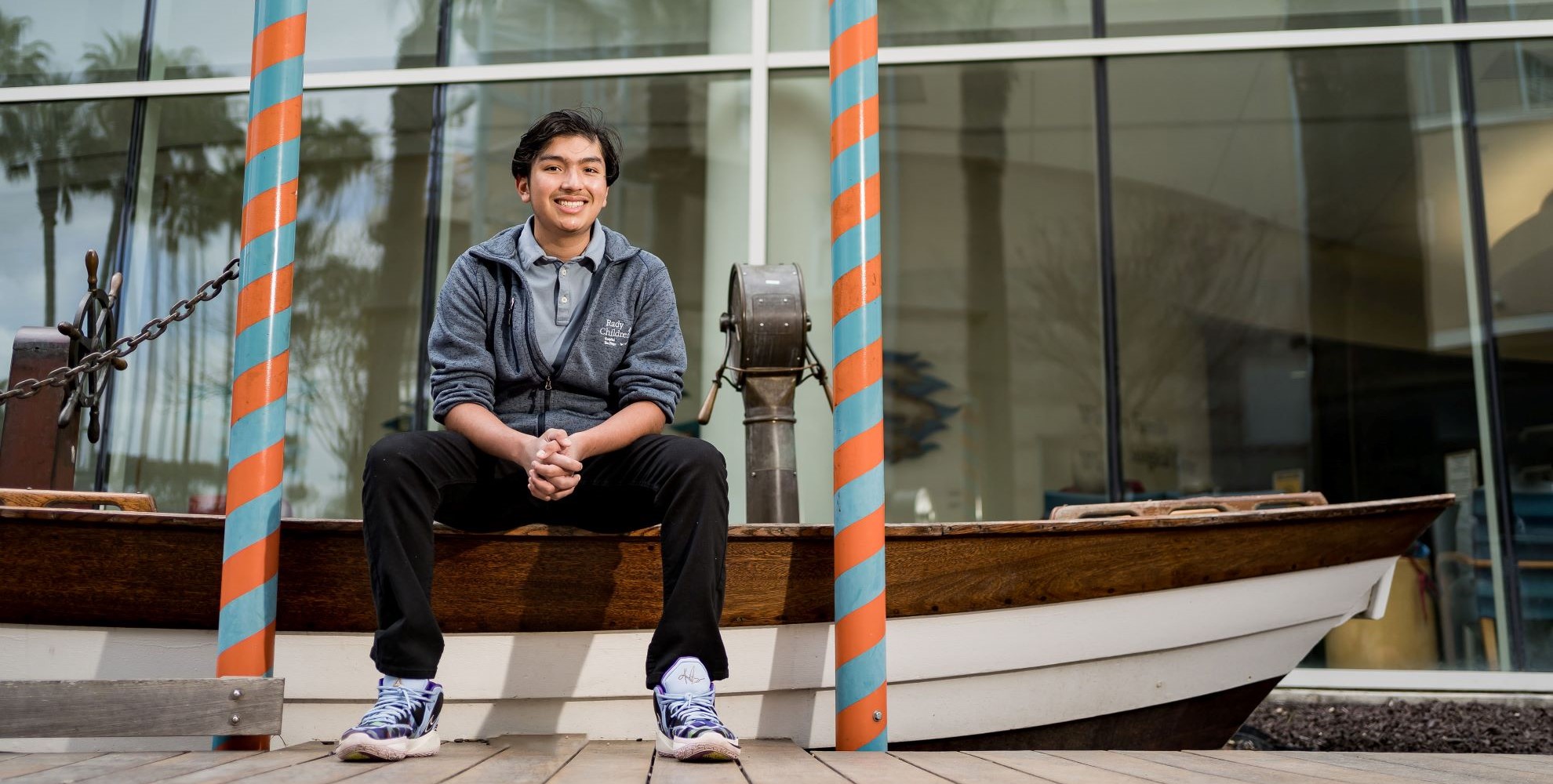How Genomics Saved a Teen’s Life
Mario Luna, an eighth-grader from Culver City, has always been passionate about basketball. He even dreams of playing in the NBA one day. However, on January 12, his world was turned upside down.
It all started with a stomachache which quickly turned into a more serious heart condition.
Mario’s heart began beating uncontrollably and his breathing became labored. He knew something was wrong, so he asked his mother if he could go to the doctor. Once doctors evaluated him, Mario was rushed to the emergency room and later transferred to a children’s hospital in Orange County. Mario’s heart rate reached 240 at one point, which doctors likened to running a non-stop marathon. To try to control his heart rate, Mario was put on an ECMO machine, which oxygenated his blood to give his heart a rest. His heart rate remained stubbornly high. To help give his heart more rest, he was placed in a medically induced coma. Mario’s health was deteriorating quickly.
Doctors in Orange County referred Mario to Rady Children’s Hospital-San Diego, where Mario could receive the specialized care he needed.
At Rady Children’s, it became apparent that Mario needed a new heart and, to save his life, he was put on a waiting list for a heart transplant. The news was a shock to Mario and his family. They couldn’t believe that a stomachache could lead to a heart transplant.
“My whole world just came crumbling down because I was like, how do we go from stomachache to heart transplant so quickly?” Mario said. “It turned out that my genetics held the clue and the cure.”
Mario’s mom mentioned that her brother was managing a similar health condition and this encouraged doctors to look further into a possible genetic link. Luckily for Mario, Rady Children’s has a Genomics Institute that could help provide an answer. After digging further into his genome, it turned out that Mario had a mutation in a gene called TTN. This gene produces a protein called Titin that helps heart muscle cells stick together and contract properly. However, due to the gene mutation, Mario’s body couldn’t make a normal functioning Titin protein, which can lead to heart problems over time. Not everyone with this mutation will develop heart issues and the age at which symptoms appear can vary, even within families. The Titin protein is also found in skeletal muscles and depending on where the mutation is located, it can affect the heart or muscles, or both.
After only two days on the transplant list, Mario received a donor heart. The surgery was a success and Mario’s road to recovery began. Fortunately, his new, donated, heart is not affected by the TTN mutation and he can expect to make a full recovery.
“I didn’t even hesitate. I just went for it and said let’s not waste time. I’m just happy that I got my heart transplant,” Mario shared.
Rady Children’s Heart Transplant Center is among the best in the country and has developed a program that can provide heart transplants for patients of all ages, from infancy through adulthood, who have congenital heart disease. The team of highly skilled and experienced health care professionals take on some of the toughest cases, with a reputation for excellent outcomes that have made it the leading referral center not only for the Southern California region, but also for parts of Arizona, Hawaii, and the South Pacific.
Mario’s experience has inspired him to encourage others to be organ and blood donors. He is determined to return to basketball once he fully recovers and credits his amazing recovery to his donors. With a new heart, he feels empowered to achieve anything he sets his mind to, both on and off the basketball court.
The Heart Transplant Center is part of Rady Children’s nationally-ranked Heart Institute, a specialized center that provides comprehensive cardiac care for children with heart conditions. The Heart Institute is equipped with the latest technology and advanced diagnostic and treatment capabilities, including cutting-edge imaging equipment, advanced surgical techniques, and innovative research programs. The team at the Heart Institute is dedicated to providing the highest level of care to children with heart conditions, like Mario, and their families, with a focus on personalized, family-centered care. Learn more at rchsd.org/programs-services/heart-institute.

